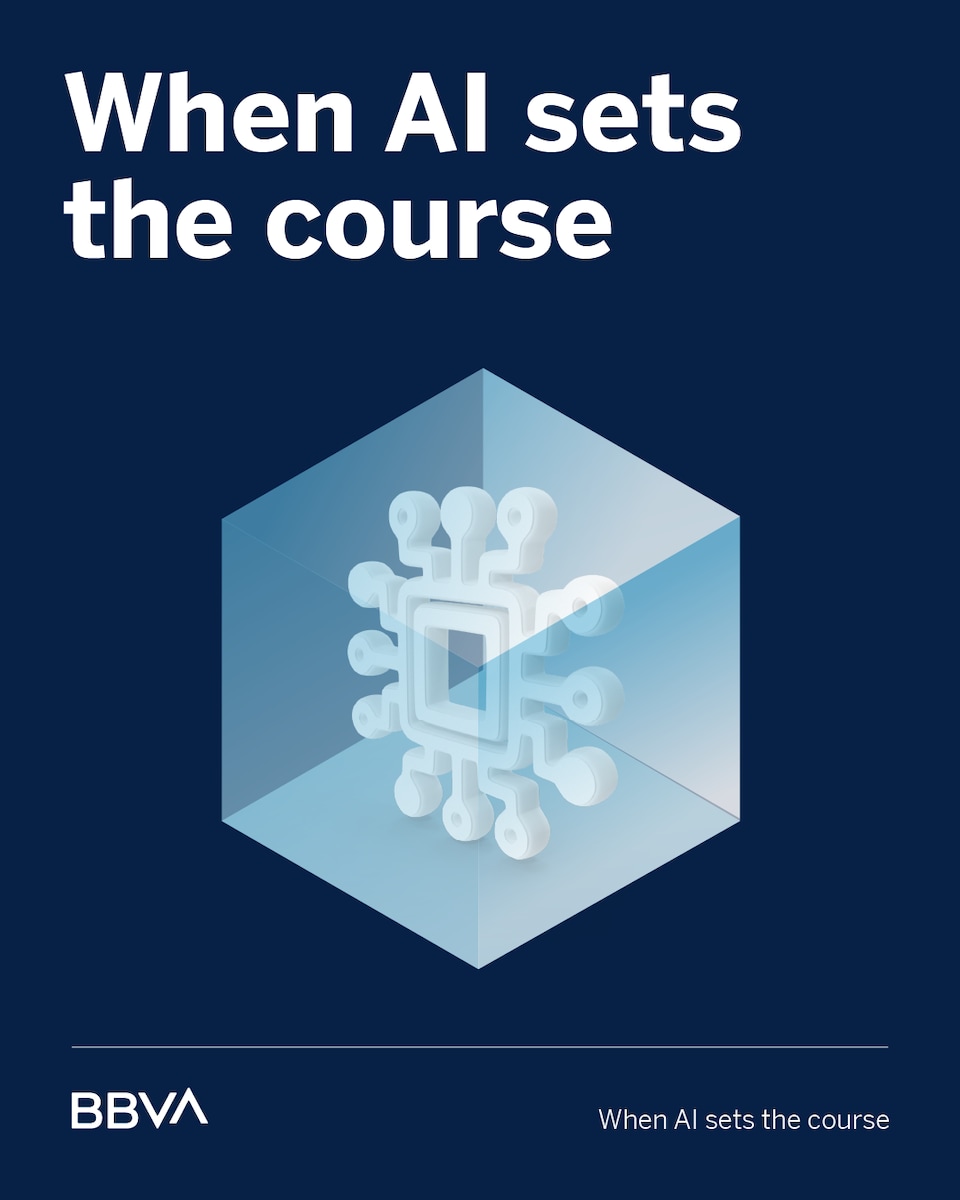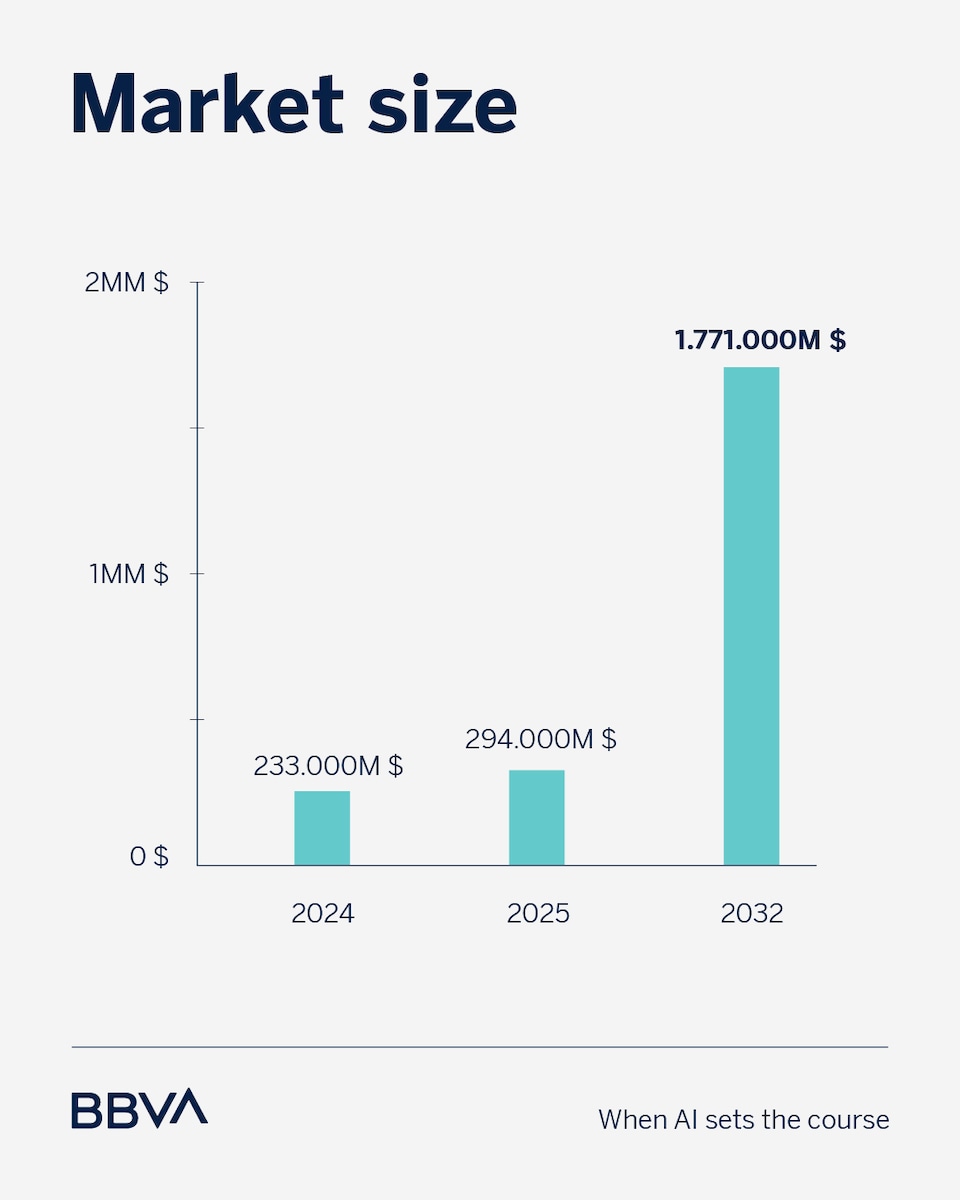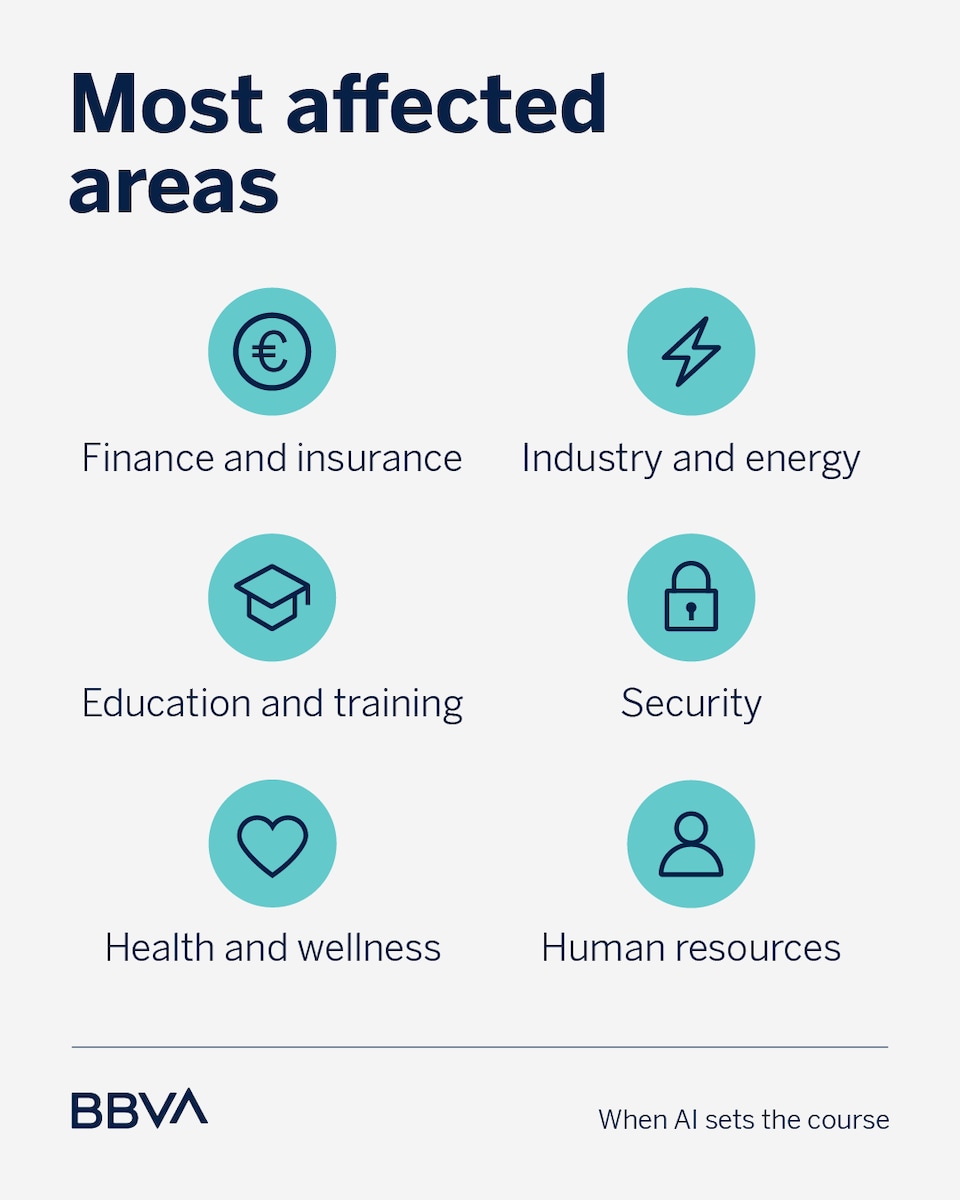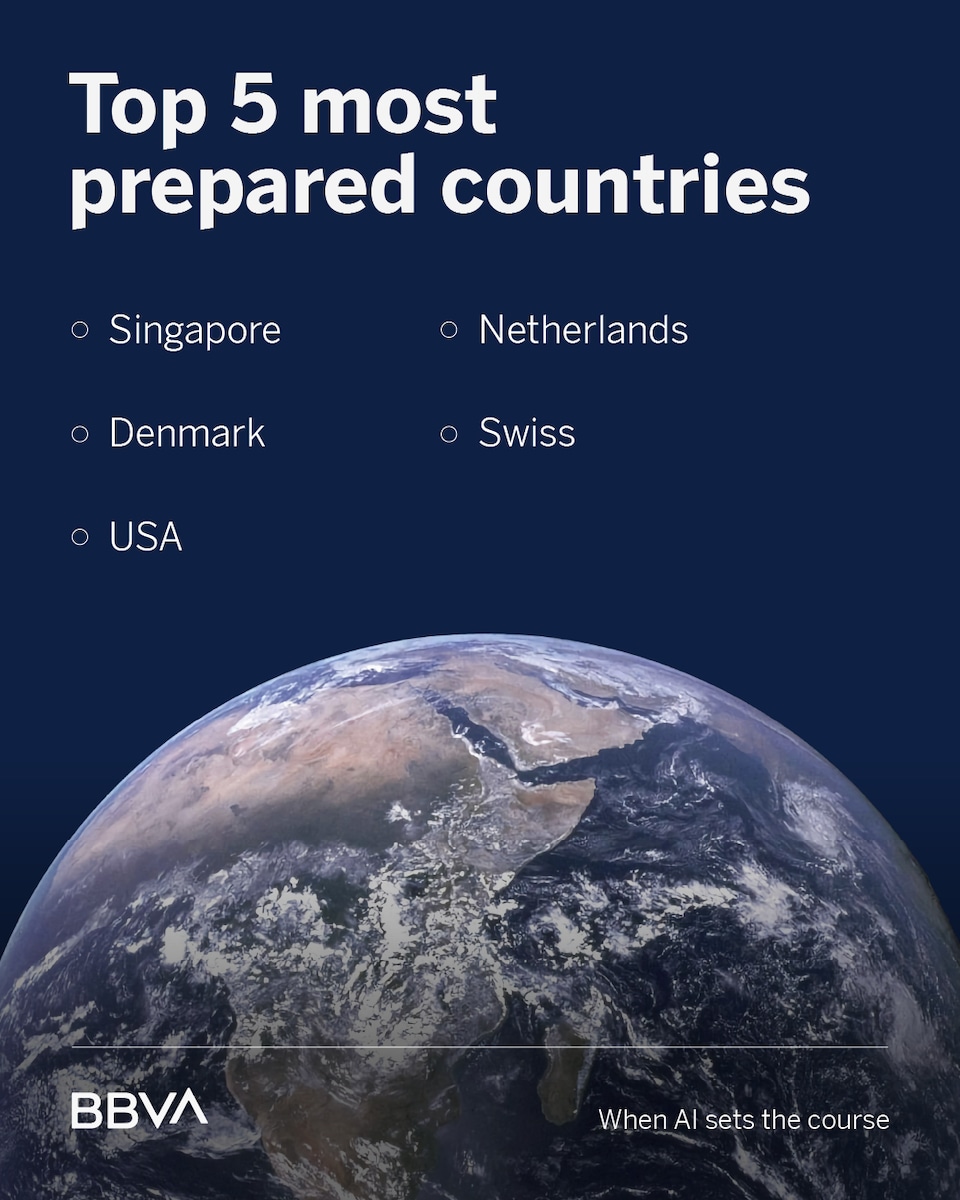By the end of 2025, the size of the artificial intelligence market will be nearing $300 billion. According to experts, the impact of the latest technological revolution will increase productivity and revenue. Finance, insurance, industry, energy, education, health and human resources are the sectors that will first notice the impact of this first wave of AI. The United The US, Finland and Switzerland are the best positioned countries.
Could you have imagined five years ago that there would be a web tool you could chat with, detect behavior patterns by inputting data, make complex estimates, generate programming code, and even create original graphic design–level images in just seconds? Probably not. The reality is that all these advances have been made possible thanks to artificial intelligence, which is already running at full speed and going by different names.
Who hasn't heard of ChatGPT, Gemini or DeepSeek? All these generative AI chatbots have been designed for us to interact with because they can read, understand, and respond. AI is presented to the world with the promise of being a technological revolution on the scale of the internet. But is that really the case? What’s its current status? How fast is it growing? What impact will it have on businesses, countries, and the economy as a whole?
Size and growth of the AI market
According to Fortune Business magazine, the AI market size in 2024 was $233.46 billion, and it's expected to grow to $294.16 billion in 2025 and reach $1,771,620 million by 2032. In other words, that’s a compound annual growth rate of 29.2% for the 2024–2032 period. The platform Statista adds that the AI market value will surpass $300 billion in 2026.
Right now, 35% of companies have already integrated this new technology, and of those, 90% are using it to stay at the forefront of innovation and market leadership. But it doesn’t stop there. Major governments, like the US, U.S. have announced a $500 billion investment in the Stargate AI project to place the country at the forefront of this revolution. In fact, Goldman Sachs has already estimated that global investments in artificial intelligence will hit $200 billion in 2025.
How will AI transform the world?
The global economic impact is expected to reach $17.9 trillion, the amount AI will contribute to the world economy by 2030, when it’s projected to account for 3.5% of global GDP, according to International Data Corporation (IDC). But how will it achieve this?
The impact of AI spans multiple areas. One of the most significant is productivity. According to Arcano Research, AI could boost productivity by 0.6% in Europe and 0.9% in the U.S., helping to drive overall economic growth.
To this, we can add another key insight from the International Monetary Fund (IMF), which has already noted that AI will affect 40% of current jobs and will also serve as a tool to boost productivity.
Even now, according to consulting firm McKinsey, companies that have adopted this technology have already seen their revenues increase by 5%. In fact, among companies with annual revenues over $500 million, more than three-quarters are already using AI for some aspect of their operations. Additionally, a large number of companies are also training their employees and developing new roles.
Understanding what lies ahead, from finance to health
There’s a wealth of data showing how this technology is expanding and making its mark across the globe and in every sector of the economy. But what will change the most? What will the world look like through the lens of AI?
According to consulting firm Knowmad Mood, six sectors will be most impacted by the rise of this new technology. Leading the list is the financial and insurance sector. AI will help detect fraud more quickly, generate better forecasting models, improve processes that require assessing client and company risk, and much more—all of which will free up employees to focus on tasks that are less easily automated.
Industry and energy are also likely to be deeply transformed through the implementation of new sensors, predictive capabilities, energy consumption optimization, and reduced production and maintenance costs, among other advancements.
In third place is education and training. AI will enable a much more interactive and personalized learning experience. In fact, a recent study showed that students can improve their grades by 62% when using more personalized AI-driven programs.
Safety, healthcare, and human resources are also expected to be among the most impacted areas in the coming years. These advancements point toward greater optimization, increased use of predictive models, improved data understanding and language processing, and a growing number of tasks that humans will delegate to machines, which are able to perform them more efficiently.
All things considered, it’s safe to say that AI will grow and transform the world in ways we may not yet fully grasp. But one thing is clear: its expansion and momentum are unstoppable.




